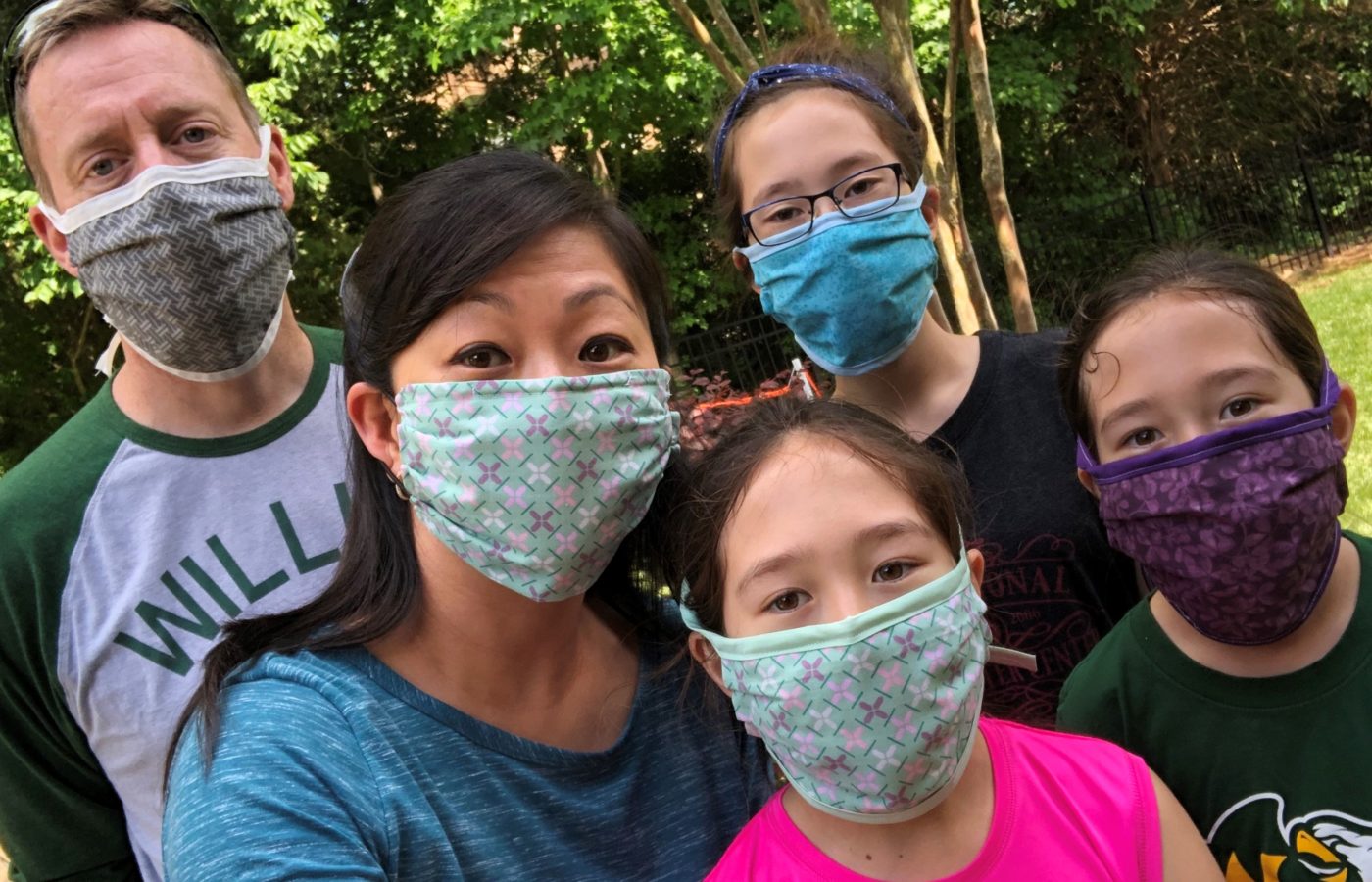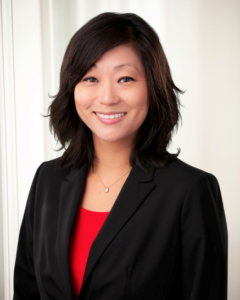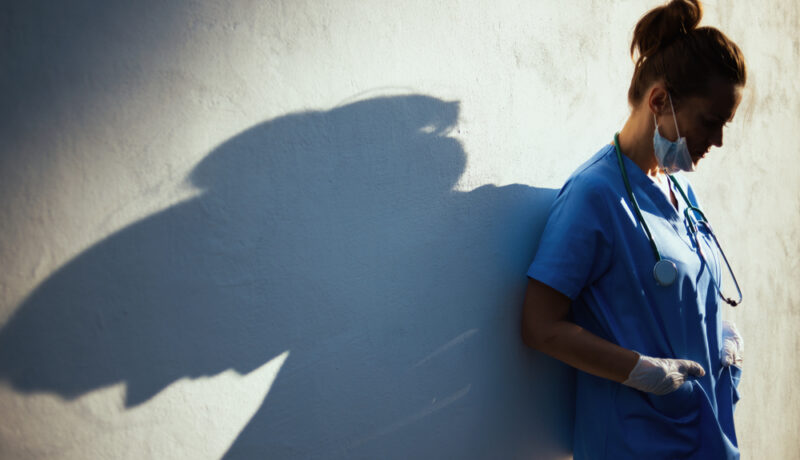Finding Joy: An Interview With Internal Medicine Physician Caroline Wilds

 Promoting holistic physician well-being is a pillar of Curi’s mission to help physicians in medicine, business, and life—and it has assumed even greater importance as healthcare workers face the stresses of the COVID-19 pandemic. To better understand physicians’ unique challenges and what feeds their resiliency in this moment, we sat down with Dr. Caroline Wilds, the physician COO of Tryon Medical Partners in Charlotte, North Carolina.
Promoting holistic physician well-being is a pillar of Curi’s mission to help physicians in medicine, business, and life—and it has assumed even greater importance as healthcare workers face the stresses of the COVID-19 pandemic. To better understand physicians’ unique challenges and what feeds their resiliency in this moment, we sat down with Dr. Caroline Wilds, the physician COO of Tryon Medical Partners in Charlotte, North Carolina.
Dr. Wilds wears two hats—a full-time internist and an administrator. Both have been critical as she and her practice battled the challenges of gaining professional independence, COVID-19, heartbreaking layoffs, and exploding servers, all while not missing a beat in their commitments to their patients.
As a physician and as an administrator, what have been your experiences dealing with the COVID-19 pandemic?
Our biggest concern as physicians is remaining able to see our patients safely and to be there for them for COVID-related illness and for chronic medical conditions. A pandemic doesn’t put regular medical problems on hold. We still ask people to come in for wellness visits and physicals because we want to make sure well people stay well. If we stop, we might see a much larger issue not related to COVID when we come out of this pandemic.
Administratively, our biggest challenge was executing on that so that patients feel safe accessing their physician. To address it, we created a COVID task force, which included physicians, nurses, administrators—everybody involved in the care of a patient. We were ready to go early in March before people understood what was happening with the virus, allowing us to get ahead of the game.
So it sounds like some of these challenges actually turned into wins?
Absolutely. These challenges showed us that as a “larger” smaller organization, we had some control and could pivot quickly to screen patients and make sure well patients could come into the office. We were one of the first in the area to open a satellite clinic almost immediately for testing.
By the time North Carolina had its first COVID-positive case, we were already sending respiratory patients and patients with fevers directly to another location. This allowed us to conserve our PPE and to see patients outdoors and in their cars, protecting them from each other and protecting our staff. We opened our second COVID clinic soon after.
Another win that really showed our ability to pivot with patient needs is telehealth. In 2019, maybe 5 or 6 of our 90 physicians did approximately 200 virtual visits. Today, we’re averaging between 200 to 500 virtual visits a day.
This sounds extremely taxing on the doctors, and it wasn’t all they faced at the time. Could you describe some of your unique challenges?
Right. In fact, we were looking to 2020 for a breather! In 2018/2019 TMP became an independent practice and opened eight facilities nationwide. It was an extraordinarily stressful and challenging time.
But this newfound independence left us poised and ready to pivot fast. When COVID hit, we didn’t close shop. Our patients came first, and we wanted to ensure they knew we were here for them.
Then, virtual visits proved frustrating. Overwhelmed sites and platforms crashed. One day after we finished training 85 physicians on our virtual-visit platform, that entire platform collapsed, leaving us unable to see our patients at all. We pivoted again. On Friday we launched a new platform, over the weekend we taught physicians that new platform, and on Monday we went live.
And then we weren’t sure we’d receive any government bailout loans, but we knew we needed to be here for our patients. Failure wasn’t an option; we had to make hard decisions to stay afloat, and something had to give. Sadly, that meant layoffs; it was our lowest point in all of this and was a very painful and difficult decision.
How are you and your practice physicians ensuring that your well-being is taken care of during these times?
Burnout is a reality, and as physicians, we tend to take care of others before taking care of ourselves. We’re quick to advise our patients to take time for self-care and self-compassion, but we doctors aren’t great at that. So we try to take care of each other, checking in regularly. Our weekly meetings include all offices, with all office members. COVID was changing every week, and meeting as a group gave us the feeling we had some control, even if we didn’t. We all share candid thoughts on our intranet, which has been nice, if electronic. Keeping the funny things is good, no matter the medium.
How have your physicians and patients adapted to virtual patient visits?
I like to see patients face to face and enjoy the privacy of sitting in a room and chatting. But virtual visits have been fantastic. Patients feel connected because the experience goes beyond “How are you doing?” to “How are you handling this?” Seeing the joy on peoples’ faces when they see you virtually is amazing and has given me more perspective on telehealth.
For those patients who don’t require a physical exam at the time, virtual visits have made life easier. Some patients have to find a ride to the office, battle the weather, maneuver wheelchairs or waiting in waiting rooms for doctors who are running behind. For these patients, telehealth has been incredibly helpful and I hope we will have the opportunity to continue using it as a tool into the future.
Have you experienced a “silver lining” to our current situation?
I get a lot of joy now watching my children explore talents they never knew they had. We’re all slowing down and appreciating what we have at home and not running to the next thing. My oldest has even discovered a love for Bob Ross! Families ride their bikes to the grocery store together! Without the quarantine, these things would never have happened!
Professionally, one of my biggest rewards is watching my partners meet these huge challenges and really do great things. I’m extremely proud of how each one has handled adversity, picked up slack, and worked toward being whole again.
And patients have given us a ton of positive feedback about how they never felt abandoned by their physicians and knew that if they needed something, it was available. It touched me.
What are some of your concerns as you look to the future?
My biggest worry now is the prolonged period ahead. I tell people complaining about wearing face masks that they might as well get used to it because we’re in it for the long haul. It’s a lot to handle. But I do know that self-compassion and self-care is an important part of making sure you’re really doing the right thing for yourself, your family, your patients, and your partners. I tell my patients, if you don’t care for yourself, you’re not going to be around to care for the people you’re trying to take care of.



